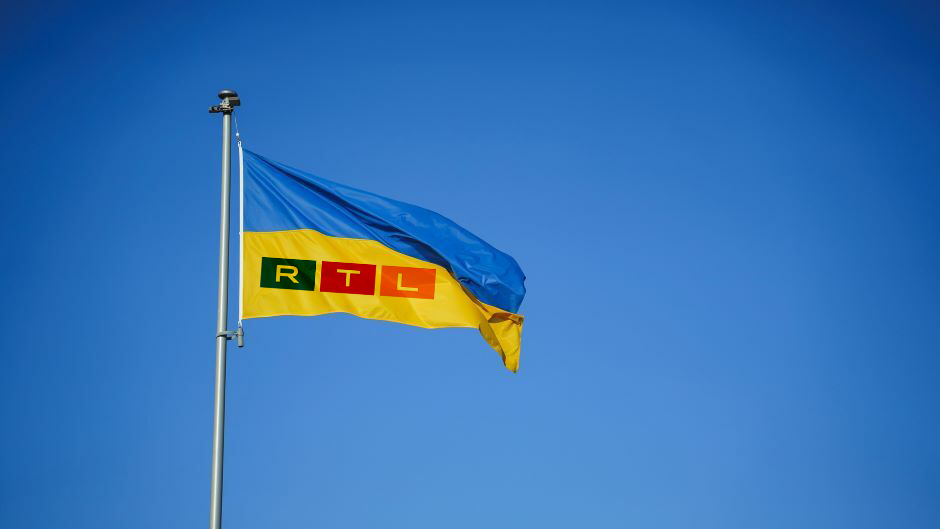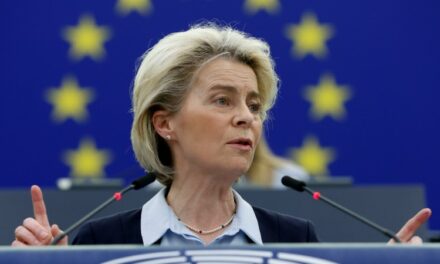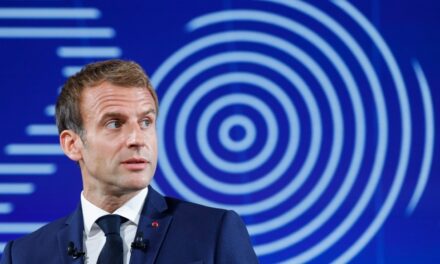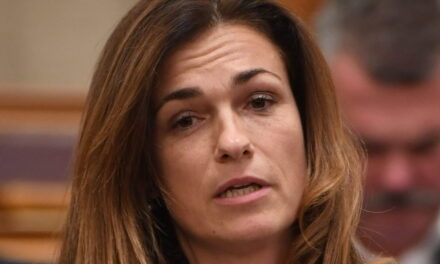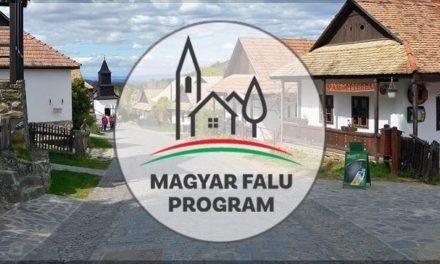While Hungarian journalists - and other public figures - are being banned from Ukraine one after the other, RTL - who else? - he hosted representatives of the Ukrainian media, which are far from sympathetic to the Hungarians. What is a double standard for us...
"We have been very interested in what Hungary is like up close, because the opinion of Ukrainians about Hungarians has deteriorated significantly in the past year and a half. When you live in a war environment, you don't differentiate between a people and what their government says. It's a simplified, but often accurate way to tell who is friend and who is enemy," said Olena Removska, a staff member of Ukrainian public media at the RTL headquarters.
As part of the Network for Reporting on Eastern Europe (n-ost) NGO program, Removska and several Ukrainian journalists visited several Hungarian newsrooms to share their experiences in the Russian-Ukrainian war and to discuss with domestic colleagues how the foreign media with the Russian invasion.
It was also discussed that the words of Péter Szijjártó, who visited Minsk and was the first to invite a member of the Russian government to the EU, and Viktor Orbán, who only reluctantly condemned the massacre in Bucs, did not help Ukrainians to have a more positive image of Hungarians, even despite the acceptance of Ukrainian refugees neither. Serhii Stukanov, the deputy editor-in-chief of the Ukrainian Radio, spoke about:
We don't really see a way out of the situation. From Ukraine, Orbán may seem like a dictator, someone who really wants to be like Putin.
"If Ukraine does not survive the war, there will be no minority issues to deal with"
"Why is it that a country is a member of NATO and the EU, yet it often does the opposite of these organizations?"
- the Ukrainian journalists summarized in a single question what they did not understand from the Hungarian government's position regarding the war. They added that many of the Ukrainians know that the Hungarians have accepted many refugees and "are grateful for that", but the government's statements have greatly damaged our judgment.
In the Hungarian media, they mainly see the Russian influence:
"We knew that Orbán's media empire was quite large, but we had no idea that he was actually so influential."
And most locals don't even know Hungarians personally, so they can only make judgments based on this kind of news and government statements.
They see that even the committed war crimes did not influence Orbán and the Hungarian government's friendship with Russia enough. "They only see that both say the same thing: Orbán and Russian propaganda." They also talked about how, in their opinion, it is excessive that the Hungarian government focuses so much on the situation of the Hungarian minorities living in Ukraine and the language law. "The Ukrainians should be ready to compromise on this, but the Hungarian government is exaggerating the problem." Since it is an "existential war",
if Ukraine does not survive the war, there will be no minority issues to deal with
was said.
Among their western neighbors, Ukrainians trust the Hungarians the least, in fact, forty percent of them believe that the government's actions could prepare Hungary to make a territorial claim to Transcarpathia.
Beyond propaganda: News about which the Ukrainian state media is deeply silent
Prepare for invasion and propaganda
Stukanov recalled:
"We received the instructions on the first day, but we had to go to the shelter every two hours because of the rocket fire. After we had to spend the first night in a shelter, the management decided that we would then move to Western Ukraine".
However, they considered it important to talk about the fact that, unlike Russia, public figures, as well as representatives of cultural life and the media, do not flee from Ukraine. Bohdana Neborak, who also works as a cultural organizer, spoke about:
"Many were offered jobs or asylum in the USA, but no one went because they felt they were needed here to serve society. I also have this need".
Journalists have to deal not only with the danger of war, but also with continuous Russian propaganda. According to Removska, it is more important than fact-checking such information to "concentrate on producing reliable reports and not allow the information space to be filled with fake news in the absence of reliable news."
He reminds that the situation in Ukraine was made easier by the fact that most Russian news channels had already been banned.
But, according to him, Western journalists are still able to be influenced by the Russians, for whom social media - especially Telegram - gives them a lot of space to spread their own point of view. "So more people start working with narratives that are wrong from the first moment". He believes that "the most important thing is to develop people's media literacy. Simply refuting fake news is not enough".
The state does not interfere in the reporting, but self-censorship works
It was also discussed how much the Ukrainian state led by Volodymyr Zelenskiy interferes in the work of individual editorial offices during the war, and how much it dictates the content.
According to the journalists, there is quite serious self-censorship in the Ukrainian media when it comes to information about the army and troop movements: everyone is careful not to write anything that could give the Russians an advantage on the battlefield.
It also happens that some photos or videos of the military need to be checked before they can be published.
In general, they feel that the Ukrainian media grew up with the Western media during the war, and they also give a more accurate picture of the country, as they have more and more Ukrainian colleagues. On the other hand, they complain that there are cases that the Western media can report on, but they cannot. They cited as an example a news report by the Reuters news agency about the defense of Kiev, which included footage that they should not have made public.
Despite such problems, however, they feel that "freedom of speech works very well", an example of which is the numerous news reports about corruption in the Ukrainian authorities, even within the Ministry of Defense.
The journalists visiting RTL also talked about the following: if both domestic and foreign media do their job well, readers will not become indifferent to the war even after such a long period of time. After all, a good journalist always finds new ways to make the topic relatable, to connect with the audience, and to present human destinies and the culture, society and national identity shaped by war.

